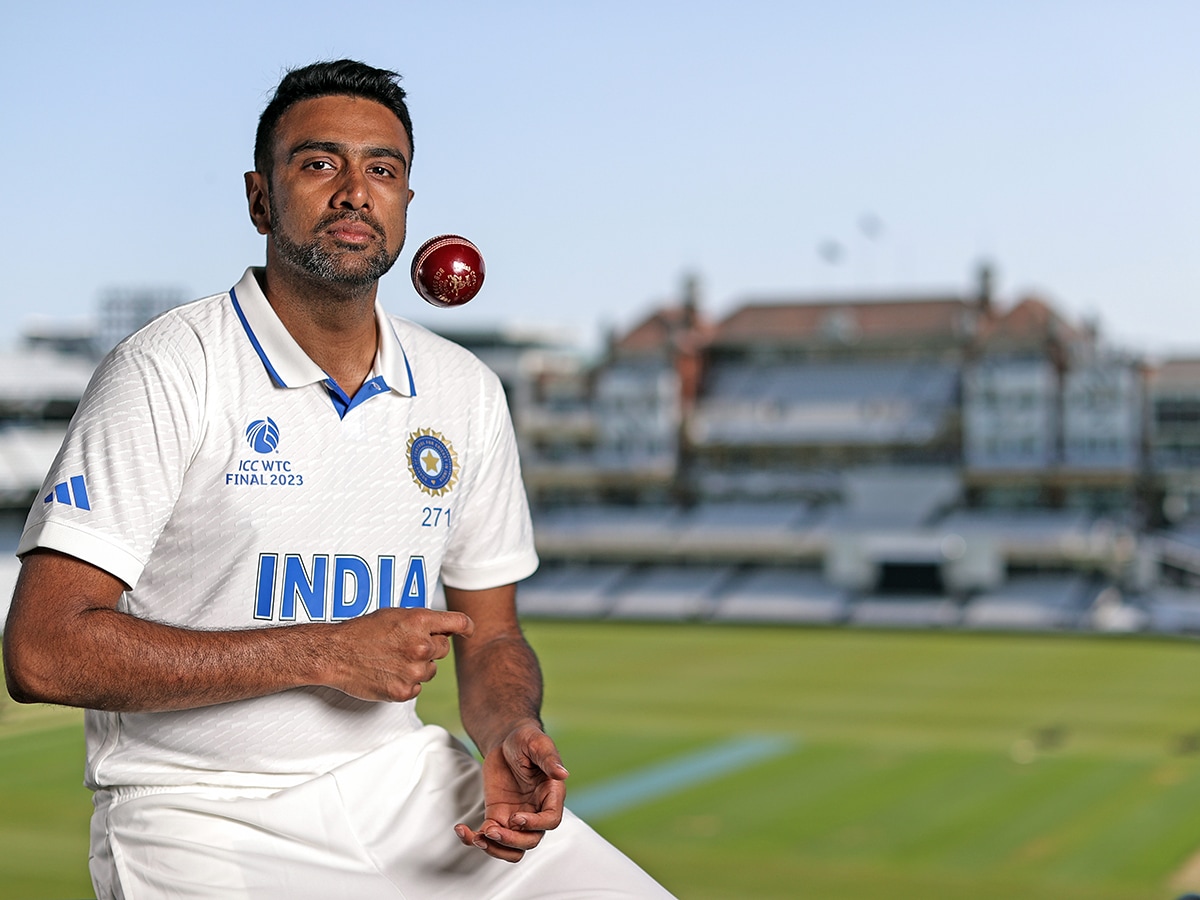1) Picking a side
 Aneesh Reddy, co-founder and vice chairman, Capillary Technologies Image: Selvaprakash Lakshmanan for Forbes India
Aneesh Reddy, co-founder and vice chairman, Capillary Technologies Image: Selvaprakash Lakshmanan for Forbes India
Let’s begin with the thought that movies are inspired by real life. In the 2015 film The Intern, starring Anne Hathaway and Robert De Niro, Hathaway’s character, a startup founder, is struggling to decide if she wants to continue leading the company she created or bring in a professional CEO who has more experience than her and might lead her venture into a better future while also reducing her responsibilities. What if it goes wrong? What happens if it backfires? Will the new person be a good fit? The movie has a cute conclusion, and everyone lives happily ever after. But in real life, there are many more complications when deciding a path between founder mode or manager mode. Aneesh Reddy, co-founder and vice chairman of Capillary Technologies, had to recently make that decision. In conversation with Forbes India, Reddy opens up about letting go and trusting a professional to take your company from 10 to 100.
2) Aiming for a level playing field
 Shruti Shibulal CEO and director of Tamara Leisure Image: Nishant Ratnakar for Forbes India
Shruti Shibulal CEO and director of Tamara Leisure Image: Nishant Ratnakar for Forbes India
People are at the core of Shruti Shibulal’s business philosophy. This is evident in her emphasis on talent diversity at Tamara Leisure Experiences, her hospitality venture that will soon complete two decades. Whether at their luxury resorts, wellness hospitals or hotels, there is one thing that she has experienced first-hand—the efficiency and value that teamwork brings. She believes the ideal way to bring out the best in people is to build an equitable workplace—where men and women have equal opportunities, understand each other’s challenges and collaborate meaningfully. Here, the CEO and director of Tamara Leisure Experiences shares insights on fighting ageism, building a responsible business, and entrepreneurship in India.
3) Eureka Forbes’ udaan
 (L to R) Anurag Kumar, Chief Growth Officer, Pratik Pota, MD and CEO, Eureka Forbes, Gaurav Khandelwal, Chief financial officer, Mahnaz Shaikh, CHRO at Eureka Forbes. Image: Mexy Xavier
(L to R) Anurag Kumar, Chief Growth Officer, Pratik Pota, MD and CEO, Eureka Forbes, Gaurav Khandelwal, Chief financial officer, Mahnaz Shaikh, CHRO at Eureka Forbes. Image: Mexy Xavier
Operation Udaan is what Pratik Pota, CEO and MD of Eureka Forbes, called his transformation strategy. Pota joined India’s leading health and hygiene brand in July 2022 after Advent International bought the consumer durable flagship of Shapoorji Pallonji Group. He saw provinces within the empire–marketing team, sales team, products team, and channel team–fighting each other rather than looking outward and fighting the competition. While they were duking out in the boardroom, Kent RO, LG and other competitors had already made deep cuts. Pota set out to reinvent the brand that once was a household name. Here’s the story of the transformation and turnaround that brought the much-needed growth.
Discover
1) Making magic with rhythm
 Ustad Zakir Hussain. Image: Manjunath Kiran / AFP
Ustad Zakir Hussain. Image: Manjunath Kiran / AFP
With his unparalleled artistry, the tabla virtuoso Zakir Hussain brought Indian classical music to the global stage, seamlessly blending Indian classical traditions with global music to craft masterpieces that transcended the borders of language and culture, revealing the thread that unites humanity. Hussain teased out his signature orchestral fireworks from the tabla that raised it from its role as an accompanist to its status centre stage in rapturously silent concert halls. The dizzying weave from Ustad’s fingers on the tabla’s skin would set off a cascade of taals, sounding like intricately choreographed firecrackers, against aural taunts from his wrist’s thundering lows. A tribute to his journey in pictures.
2) Spin King bids adieu
 Ravichandran Ashwin of India poses for a portrait prior to the ICC World Test Championship Final 2023 at The Oval on June, 2023 in London, England. Image: Ryan Pierse-ICC/ICC via Getty Images
Ravichandran Ashwin of India poses for a portrait prior to the ICC World Test Championship Final 2023 at The Oval on June, 2023 in London, England. Image: Ryan Pierse-ICC/ICC via Getty Images
Quite abruptly. Indian cricket fans were just catching their breath as Team India drew the Gabba Test against Australia, the third Test match in the Boder-Gavaskar Trophy series. Then came the bombshell. It was in the true R Ashwin fashion. Unpredictable and unexpected. “This is my last day as an international cricketer. I have created a lot of memories. We are the last bunch of OGs in the dressing room. A lot of people to thank, BCCI, my fellow teammates, all the coaches,” Ashwin said while announcing his retirement in the press conference. The speculation market is rife, discussing the reasons behind retirement. Experts are questioning the timing, senior players are showing disappointment, and fans are still in shock. But none deny that the off-spinner is one of the best bowlers India has produced. We shall see Anna, Lege, playing for CSK in IPL 2025, but for now, here’s a quick overview of his stellar international career.
3) The Banarasi Edit
 The Banarsi Edit collection showcases sarees redefined with structured silhouettes and elevated with Amit Aggarwal’s signature cording technique. Image: Ankit Chawla
The Banarsi Edit collection showcases sarees redefined with structured silhouettes and elevated with Amit Aggarwal’s signature cording technique. Image: Ankit Chawla
Luxury fashion has a sustainability problem at every point of its supply chain. Both luxury brands and consumers are making a conscious effort to be more respectful of the environment. While niche fashion houses such as Stella McCartney, Gabriela Hearst, Acne Studios, and Chloe have already moved to slow fashion and using sustainable fabric, luxury giants are yet to make big moves. They are still wary of upcycling, but Hermes, Miu Miu, and even Louis Vuitton did some capsule collections this year with upcycled items. One such attempt was made on the home ground by designer Amit Aggarwal. Known for his sculpted creations, Aggarwal merged tradition with modernity to breathe new life into pre-loved textiles with his The Banarasi Edit. In conversation with Forbes India, Aggarwal shares insights into the unique collection that fashion connoisseurs love.
4) The $6 billion bet
 Joshua Jordan Harris, an American investor, sports team owner, and philanthropist Image: Cody Pickens for Forbes
Joshua Jordan Harris, an American investor, sports team owner, and philanthropist Image: Cody Pickens for Forbes
We started this week’s newsletter with a movie reference; we might as well end it with another. Brad Pitt’s 2011 film Moneyball is an excellent lesson in understanding the game of baseball, its history in the US, how data helps, and how franchise teams are run. That sports drama was a good underdog story. But what billionaire Joshua Jordan Harris and other private equity players are trying to do at the NFL deviates just a little from the plot of Moneyball. Harris assembled a 23-person ownership group to buy Washington Commanders at $6 billion. The team has not won the Super Bowl in the last 30 years, yet it has become a risk-free investment for Harris. Recently, the NFL opened its gates to PE players, and they are rushing in to leverage the popularity of American football. Here’s an interesting analysis of these new owners with nothing to lose.
 Aneesh Reddy, co-founder and vice chairman, Capillary Technologies Image: Selvaprakash Lakshmanan for Forbes India
Aneesh Reddy, co-founder and vice chairman, Capillary Technologies Image: Selvaprakash Lakshmanan for Forbes India Shruti Shibulal CEO and director of Tamara Leisure Image: Nishant Ratnakar for Forbes India
Shruti Shibulal CEO and director of Tamara Leisure Image: Nishant Ratnakar for Forbes India (L to R) Anurag Kumar, Chief Growth Officer, Pratik Pota, MD and CEO, Eureka Forbes, Gaurav Khandelwal, Chief financial officer, Mahnaz Shaikh, CHRO at Eureka Forbes. Image: Mexy Xavier
(L to R) Anurag Kumar, Chief Growth Officer, Pratik Pota, MD and CEO, Eureka Forbes, Gaurav Khandelwal, Chief financial officer, Mahnaz Shaikh, CHRO at Eureka Forbes. Image: Mexy Xavier 



